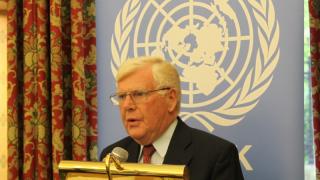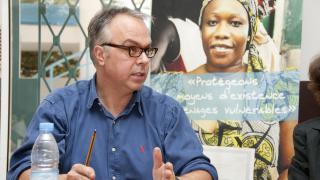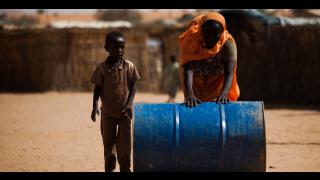
The debate around the world’s drug laws has gained momentum in recent years. A new report by the Global Commission on Drug Policy, made up of former diplomats and world leaders, has declared that “the international drug control regime is broken”.
In 2016, the UN will hold a General Assembly Special Session on the issue (brought forward three years at the behest of Guatemala, Mexico and Colombia), which is expected to come up with possible alternatives to the current system. In light of this, New World asks, is it time to reconsider the global prohibition on drugs?
Yes
- Overemphasis on penalising those who take drugs rather than those who supply them has led to a skewed system where the users are neglected and producers get rich.
- Drug use, or more specifically drug dependence (defined by the UN as a chronic disease affecting the brain) is, first and foremost, a health issue that requires medical treatment.
- Fear of arrest and imprisonment discourages drug dependants to seek treatment. According to the World Health Organization (WHO), on average just one in six problem drug users access treatment.
- Criminalisation also encourages high-risk behaviour, such as sharing needles, which has in turn severely exacerbated other serious health concerns, such as HIV/AIDS and Hepatitis C. A 2014 WHO report on the prevention of HIV transmission called for the decriminalisation of drug use by injection.
- State regulation of the drugs market could make the drugs themselves safer by guaranteeing they are not mixed with other harmful substances and by reducing the associated risks, e.g. by providing clean needles.
- The global drugs market, valued at over $330bn a year by 2005 data, would also provide a valuable source of tax revenue. Colorado, one of two US states to have recently legalised recreational marijuana, raised $2m in additional sales taxes in the first month after the prohibition was lifted.
- Decriminalisation would mean that the billions of dollars currently spent on enforcing prohibition could be redirected elsewhere, particularly vital for freeing up resources for development in low-income countries.
- Those calling for reform agree that the “war on drugs” has failed. Despite major global efforts, supply and demand for drugs has soared in the 50 years since the first UN narcotics convention – global opium production alone has increased 380 per cent since 1980 – and security in affected countries has worsened.
- As was the case with alcohol in the US in the 1920s, ending the prohibition on drugs would disarm organised crime groups that rely on the illicit trade for money and influence.
No
- Drugs are illegal because they are inherently dangerous to a person’s health and therefore should not be sanctioned or sold by the state. According to the UK Office for National Statistics, 2,955 people died from taking drugs in England and Wales in 2013.
- Legal does not necessarily mean safe. The proliferation of so-called “legal highs” (new substances not yet covered by domestic laws), has been linked with dozens of deaths. So too have tobacco and alcohol, on an even greater scale.
- There has been very little research into the practicalities of a state regulating the drugs market. Uruguay has recently legalised cannabis but regulating the entire market would be an enormous undertaking. Nor has it been considered whether all governments would have the capacity to do so.
- Taking over the drugs market would not wholly eliminate the revenues of organised crime groups. There would inevitably be a competitive black market, offering cheaper alternatives, with the same associated crime and violence.
- The drugs trade cannot be seen as an isolated problem with a single solution. It is inextricably linked with global corruption, money laundering and human trafficking, and any efforts to tackle the issue should be coordinated with other organised crime and global security initiatives.
- Countries such as Afghanistan, which is badly affected by the global heroin trade and where state institutions are notably weak, demonstrate why it is so important that the production and distribution of drugs must be stopped. It is estimated that the opium trade earns paramilitary groups on the Afghanistan/ Pakistan border up to $500m a year, helping to destabilise the entire region.
- While legalisation of drugs could potentially weaken organised crime groups, they won’t simply disappear. In Mexico, where the government has stepped up efforts to tackle the drugs trade, resistance has been fierce. It is estimated that 60,000–100,000 people have died in drug-related violence since 2006. These groups will never be stopped without tough punitive enforcement measures.
Photo: A woman smokes heroine with her husband and son in a small cave area in Islam Qala, Afghanistan. © UN Photo/Eric Kanalstein.













